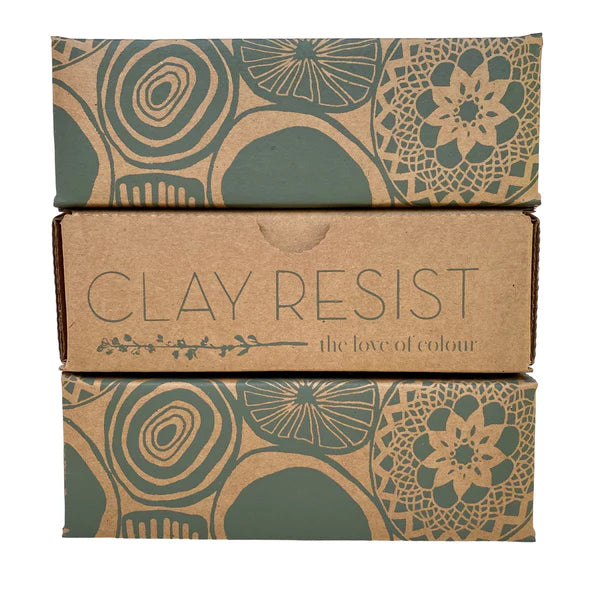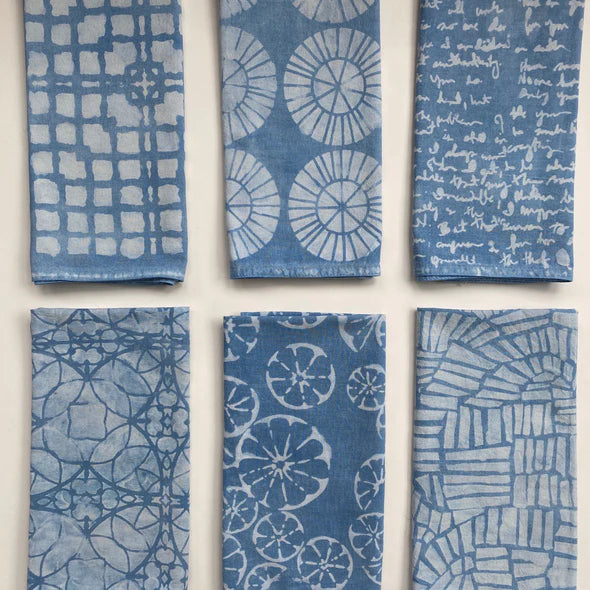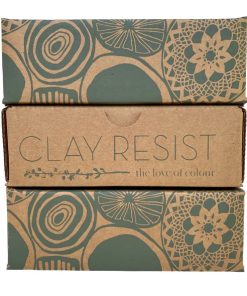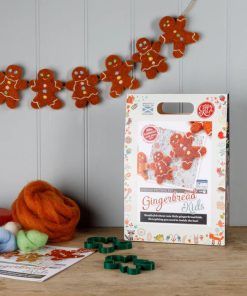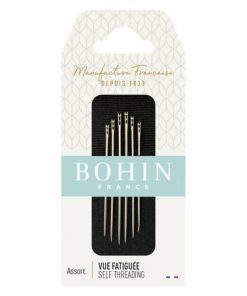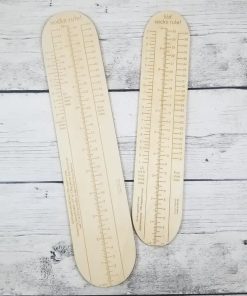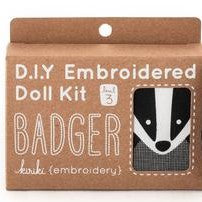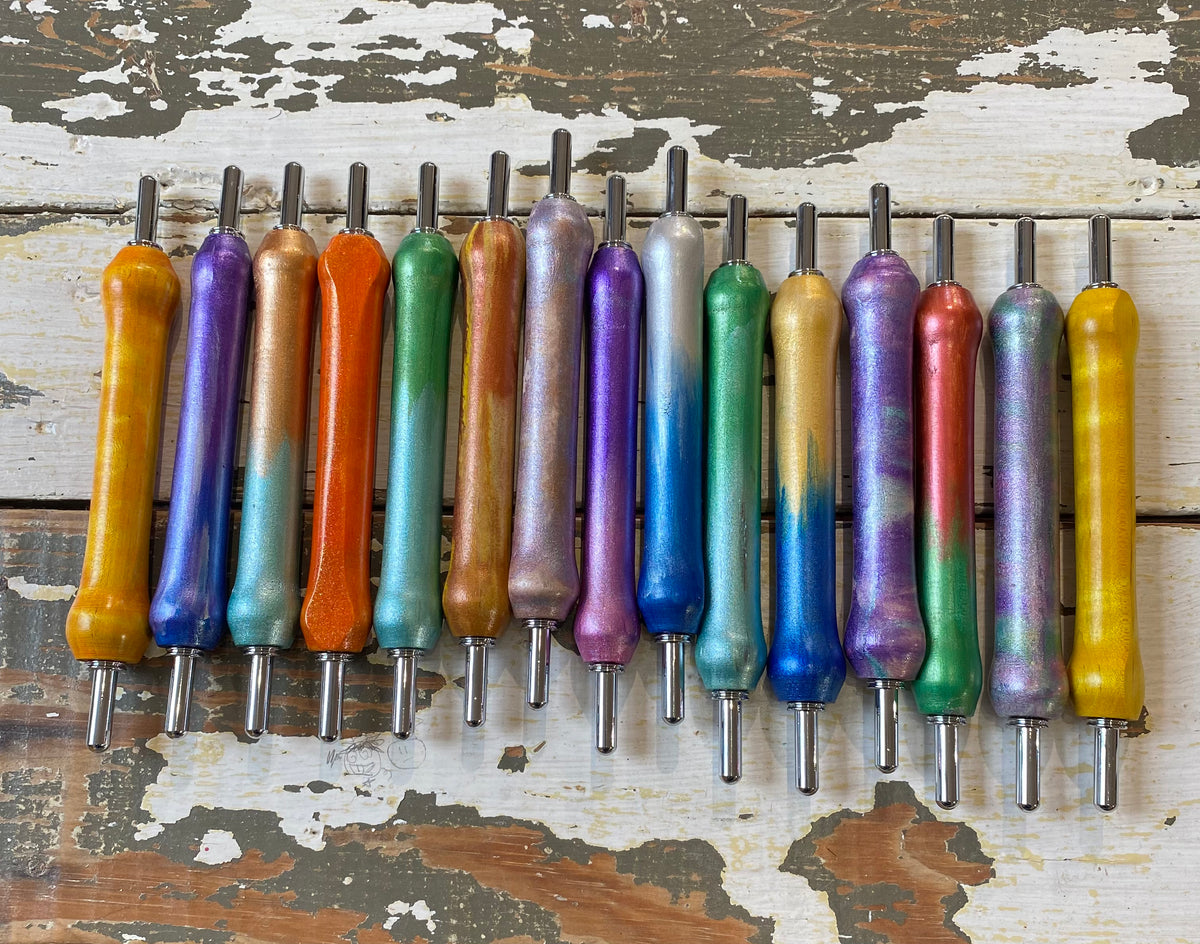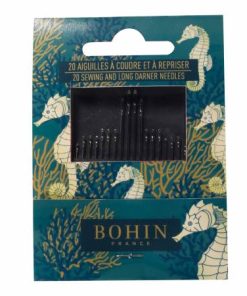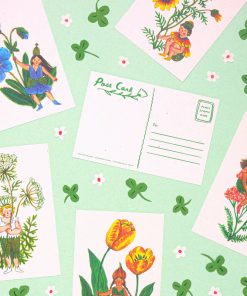Our newest beginner kit – to be used with the indigo dye kit.
Contains the pre-measured ingredients to create a thickened clay paste, which you can print onto fabric using the method of your choice – paint, stencil, silk screen, wood block, lino cut print, etc.
Once printed and dried, you dye your fabric in indigo and the dye will resist where you have printed the clay, leaving these areas undyed while the rest of your fabric becomes blue. This technique only works with indigo, since clay paste is soluble in water and would wash off in other dye baths, but the unique qualities of the indigo vat mean that the clay holds up in the vat. When you are finished dyeing, you simply wash off the paste and reveal your design.
==============================
Contents:
15g magnesium sulphate (epsom salts)
30g gum arabic
50g calcium bentonite clay
==============================
This kit only includes the ingredients for the clay paste. You will need an indigo vat for the actual dyeing. You can use any type of indigo vat.
The paste can be used on any fabric made of natural fibres, such as cotton, linen, wool, silk, etc. We recommend using fabric without too much texture, and that you begin by using smaller pieces of fabric, rather than one large. Coloured or previously dyed fabric works as well. If your fabric is yellow, for example, it will remain yellow where you apply the paste, and will become green where it mixes with the blue from the indigo vat.
The quantity of fabric you can print and dye will depend on your design – if your design has a lot of “white space” or areas that will be resist printed, the paste will get used up quickly. If your design has finer lines and smaller areas of resist, you will be able to print more fabric. As a general ballpark, you can expect to resist print 2-4 yards of fabric.
Quick Shipping and Professional Packaging
We offer a wide range of shipping options due to our long-standing relationships with UPS, FedEx and DHL. Our warehouse staff are highly trained and will package your items in accordance with our exact and precise specifications. Your items will go through an exhaustive examination before they will be properly packaged prior to being sent out. Every day, we deliver to thousands of customers in many countries. The fact that we are dedicated to becoming the largest online retailer in the World is obvious. Both Europe and the USA have distribution and warehouse centres.
Please note that orders with multiple items are given a processing time according to the particular item.
Prior to shipment, we inspect the ordered items thoroughly. The majority of orders will be shipped within 48 hours. It is expected that delivery will take between three and seven days.
Returns
The inventory is always changing and we are unable to completely manage it due to the fact that multiple parties are involved, including our factory and warehouse. Stock levels can fluctuate at any given time. Please understand it may happen that your order will be out of stock when the order has been placed.
Our policy is for 30 days. If you don't receive your product within 30 days, we're not able to issue a refund or an exchange.
In order to be eligible for a refund, your product must be unopened and in the same state as when you received it. It must also be returned in its original packaging.
Related products
Needle Felting
Notions
Gift Card
Embroidery
Notion Misc
Notions
Embroidery
Embroidery
Embroidery
